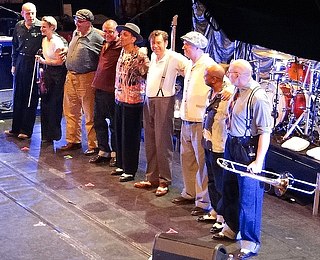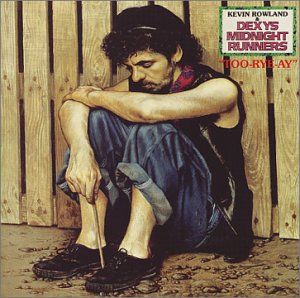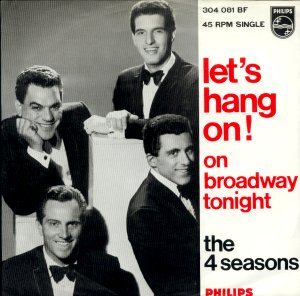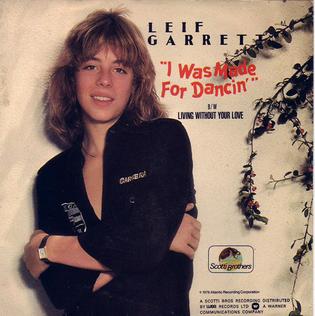
Dexys Midnight Runners are an English pop rock band from Birmingham, with soul influences, who achieved major commercial success in the early to mid-1980s. They are best known in the UK for their songs "Come On Eileen" and "Geno", both of which peaked at No. 1 on the UK Singles Chart, as well as six other top-20 singles. "Come On Eileen" also topped the US Billboard Hot 100, and with extensive airplay on MTV they are associated with the Second British Invasion.

Kevin Rowland is a British singer and musician best known as the frontman for the pop band Dexys Midnight Runners. The band had several hits in the early 1980s, the most notable being "Geno" and "Come On Eileen", both of which reached number one on the UK Singles Chart.

"Come On Eileen" is a song by the English group Dexys Midnight Runners, released in the United Kingdom in June 1982 as a single from their second studio album Too-Rye-Ay. It reached number one in the United States and was their second number one hit in the UK, following 1980's "Geno". The song was produced by Clive Langer and Alan Winstanley and was initially claimed to be written by Kevin Rowland, Jim Paterson and Billy Adams, although Rowland later stated that the essence of the tune should be attributed to Kevin Archer.

The Motors were a British pub rock band formed in London in 1977 by former Ducks Deluxe members Nick Garvey and Andy McMaster together with guitarist Rob Hendry and drummer Ricky Slaughter. Their biggest success was with the McMaster-penned song "Airport", a number 4 UK hit single in 1978.

Searching for the Young Soul Rebels is the debut studio album by English soul group Dexys Midnight Runners, released on 11 July 1980, through Parlophone and EMI Records. Led by Kevin Rowland, the group formed in 1978 in Birmingham, England, and formed a strong live reputation before recording their first material. Recorded during April 1980, the album combines the aggressiveness of punk rock with soul music, particularly influenced by the Northern soul movement.

Too-Rye-Ay is the second studio album by English pop band Dexys Midnight Runners. It was released in July 1982 by Mercury Records. The album is best known for the hit single "Come On Eileen", which included the refrain that inspired the album's title. It was the band's most successful album, debuting at number two on the UK Albums Chart.
Sandy Linzer is an American songwriter, lyricist, and record producer, who is best known for his songwriting collaborations with Denny Randell and Bob Crewe in the 1960s and 1970s. He co-wrote hits including "A Lover's Concerto", "Let's Hang On!", "Working My Way Back to You", "Breakin' Down the Walls of Heartache", "Native New Yorker", and "Use It Up and Wear It Out". He was nominated with Randell for induction into the Songwriters Hall of Fame (SHOF) in 2012.
Denny Randell is an American songwriter and record producer, who is best known for his songwriting collaborations with Sandy Linzer and Bob Crewe in the 1960s and 1970s. He co-wrote hits including "A Lover's Concerto", "Let's Hang On!", "Working My Way Back to You", and "Native New Yorker", and was nominated with Linzer for induction into the Songwriters Hall of Fame (SHOF) in 2012.

"A Lover's Concerto" is a pop song written by American songwriters Sandy Linzer and Denny Randell, based on the 18th century composition by Christian Petzold, "Minuet in G major", and recorded in 1965 by the Toys. "A Lover's Concerto" sold more than two million copies and was awarded gold record certification by the RIAA.
Johnny Johnson and the Bandwagon were an American vocal soul group, prominent in the late 1960s and early 1970s. They were fronted by singer Johnny Johnson.

"Geno" is a 1980 single by Dexys Midnight Runners. Written by Kevin Archer and Kevin Rowland, it was the band's second single and their first UK number one, staying at the top of the Singles Chart for two weeks. The song charted at number two in Ireland.

"Working My Way Back to You" is a song made popular by The Four Seasons in 1966 and The Spinners in 1980.

"Let's Hang On!" is a song composed by Bob Crewe, Sandy Linzer, and Denny Randell that was popularized by The Four Seasons in 1965. The single reached the No. 3 position in the Billboard Hot 100 singles chart, the group's highest placement since "Rag Doll" hit the top spot in July 1964.

"Opus 17 (Don't You Worry 'bout Me)" is a song composed by Sandy Linzer and Denny Randell and recorded by The Four Seasons in 1966 for their album Working My Way Back to You.

The Very Best of Dexys Midnight Runners is a best of compilation album by English pop rock band Dexys Midnight Runners, released in 1991.

The Four Seasons Story is a two-record compilation of The Four Seasons's biggest hit singles from 1962 to 1970. It was released in 1975 on the Private Stock label. It quickly became a gold record, selling over one million copies before the RIAA started awarding platinum records for million-selling albums (1976).

Let's Make This Precious: The Best of Dexys Midnight Runners is a best-of compilation album by Dexys Midnight Runners, which also contained two newly recorded songs by the group, "Manhood" and "My Life in England ". Dexys had broken up in early 1987, and these two songs, recorded in 2003, were the first new Dexys material since the single "Because of You" in 1986. Nevertheless, the album was similar to the 1991 compilation The Very Best of Dexys Midnight Runners, as eleven of the sixteen older Dexys songs on it had also been included on that album. However, to record the two new songs, Rowland put together a new version of Dexys that featured prior members Pete Williams and Mick Talbot (keyboards) plus new members such as Lucy Morgan (viola) and Neil Hubbard (guitar), and the reformed band played a series of live concerts later in 2003.
"I Wanna Dance Wit' Choo (Doo Dat Dance)" is a song written by Bob Crewe and Denny Randell and performed by Disco-Tex and the Sex-O-Lettes. The song was featured on their 1975 album, Disco Tex & His Sex-O-Lettes Review. The song was produced by Bob Crewe and arranged by Denny Randell.

"Sweet Inspiration" is a song by the American soul group Johnny Johnson and the Bandwagon, the first single from their second album Soul Survivor, released in May 1970. It peaked at number 10 on the UK Singles Chart, becoming their second top-ten hit there.

"I Was Made for Dancin'" is a song written by Michael Lloyd and performed by Leif Garrett. It reached #4 on the UK Singles Chart, #10 on the Billboard Hot 100, and #38 on the US adult contemporary chart. It also reached #2 in Australia, #10 in Germany, and #12 in Japan. The song, produced by Lloyd and arranged by John D'Andrea, was featured on his 1978 album, Feel the Need.
















